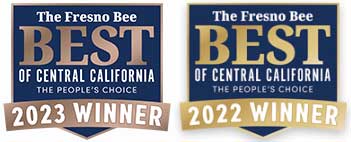- ENGR-010
- Introduction to Engineering
- Credit(s) 1
Introduction to Engineering
ENGR 010 is an introduction to the fields of engineering, courses of study, major
disciplines and career opportunities, resources for engineering students, engineering
design and analysis, ethics in engineering,engineering case studies and technical
communication skills. Individual and group work; oral and written presentations.
- Class Hours:
- 18 Lecture
- Advisory(s):
- MATH 063
- Transfers to:
- UC/CSU
- ENGR-015
- Engineering Computations
- Credit(s) 3
Engineering Computations
ENGR 015 is an introductory computer programming course for engineers focusing
on the C programming language and the UNIX programming environment; operators, standard
I/O functions, strings, pointers and arrays, data types and storage classes.
- Class Hours:
- 36 Lecture | 54 Laboratory
- Corequisite(s):
- MATH 001A (Required, Previous or concurrent).
- Transfers to:
- UC/CSU
- ENGR-020
- Engineering Graphics
- Credit(s) 3
Engineering Graphics
ENGR 020 covers the principles of engineering drawings in visually communicating
engineering designs and an introduction to computer-aided design (CAD). Topics include
the development of visualization skills; orthographic projections; mechanical dimensioning
and tolerancing practices; and the engineering design process. Assignments develop
sketching and 2-D and 3-D CAD skills. The use of CAD software is an integral part
of the course.
- Class Hours:
- 36 Lecture | 54 Laboratory
- Prerequisite(s):
- MATH 015
- Transfers to:
- UC/CSU
- ENGR-025
- Electrical Circuits
- Credit(s) 3
Electrical Circuits
ENGR 025 is the study of fundamental principles of electrical circuits including
direct current circuit analysis, AC transient and steady-state circuit analysis, Ohm's
law, Kirchoff's laws, nodal methods of circuit analysis, capacitors and inductors,
phasors and polyphase circuits.
- Class Hours:
- 54 Lecture
- Prerequisite(s):
- PHYSICS 004B, MATH 001B
- Transfers to:
- UC/CSU
- ENGR-031
- Engineering Materials
- Credit(s) 3
Engineering Materials
ENGR 031 is the study of the structure of matter and its effect on the mechanical,
electrical, magnetic, and thermal properties of materials including metals, polymers,
ceramics, composites, and electronic materials. The structure of matter includes atomic
bonding, crystal structure, defects, thermodynamics and kinetics. The course provides
an integrated study of the structure, processing, properties and performance of materials
and their implications in the context of engineering materials.
- Class Hours:
- 54 Lecture
- Prerequisite(s):
- CHEM 001A , PHYSICS 004A
- Transfers to:
- UC/CSU
- ENGR-035
- Vector Statics
- Credit(s) 3
Vector Statics
ENGR 035 is the study of vector algebra and the statics of particle equivalent
systems of force for rigid bodies, distributed forces and centroids and centers of
gravity, analysis of structures, including trusses, inertia, and the method of virtual
work.
- Class Hours:
- 54 Lecture
- Prerequisite(s):
- PHYSICS 4A
- Corequisite(s):
- MATH 002A (Required, Previous or concurrent).
- Transfers to:
- UC/CSU
